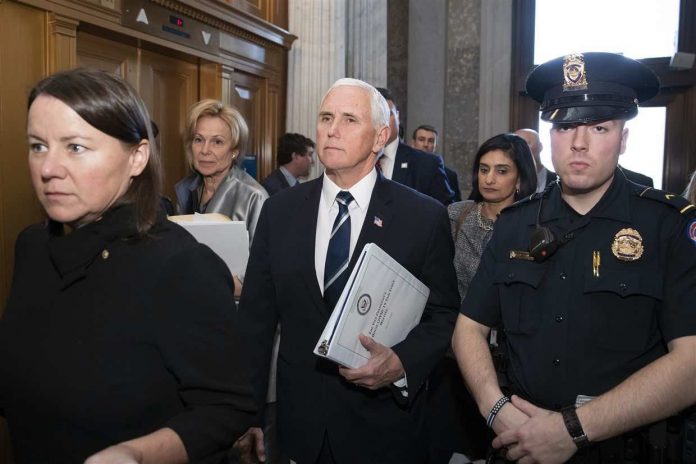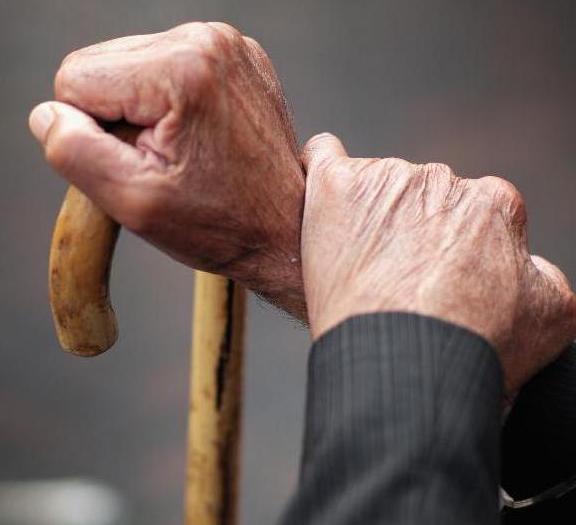The House on Wednesday passed a roughly $8 billion emergency funding bill to fight the coronavirus that has been spreading throughout the United States, hours after congressional leaders finished ironing out terms of the deal.
The bill, which passed 415-2, would provide $7.8 billion to fight the coronavirus and include a mandatory funding authorization for $500 million over 10 years to be used toward a remote health care program. The two “no” votes were those of Republican Reps. Andy Biggs of Arizona and Ken Buck of Colorado.
The bill includes a provision that would require that funds are used only to fight the coronavirus and other infectious diseases, as some Democrats feared that the Trump administration could raid the funding and use it for other unrelated purposes.
“This should not be about politics. This is about doing our job to protect the American people from a potential pandemic,” said Senate Appropriations Committee Chairman Richard Shelby, R-Ala. “We worked together to craft an aggressive and comprehensive response that provides the resources the experts say they need to combat this crisis. I thank my colleagues for their cooperation and appreciate President Trump’s eagerness to sign this legislation and get the funding out the door without delay.”
The legislation would provide more than $2 billion to the Centers for Disease Control and Prevention for public health funding for prevention, preparedness and response.
It also would allocate more than $3 billion to a public health emergency fund and the National Institutes of Health to research and develop vaccines, treatment and testing of the coronavirus. The bill would also provide nearly $1.3 billion to help protect the health of Americans living abroad from the coronavirus.
A House Democratic aide said the legislation would provide more than “$300 million to help ensure that, when a vaccine is developed, Americans can receive it regardless of their ability to pay.”
“The legislation ensures that the federal government will only pay a fair and reasonable price for coronavirus vaccines and drugs and provides HHS the authority to ensure that they are affordable in the commercial market, ” the aide said. HHS is the Department of Health and Human Services.
Ahead of the vote, Vice President Mike Pence did separate briefings on the coronavirus with Republican and Democratic House members. Rep. Eric Swalwell, D-Calif., called the briefing “a good thing” and said he was reassured by the bipartisan cooperation to address the health crisis.
Rep. Matt Gaetz, R-Fla., joked after Republicans’ briefing with Pence that the House floor was like a “petri dish” because lawmakers meet and shake hands with people all day long. In the minutes before the vote, Gaetz was wearing a gas mask on the House floor.
Trump had asked Congress for $2.5 billion to combat the virus, but Democrats quickly said that amount would be insufficient and noted that it called for taking money from programs for the poor. Senate Minority Leader Chuck Schumer, D-N.Y., responded with an $8.5 billion proposal. Schumer said Tuesday that he expected the final deal to be $7 billion to $8 billion.
The virus has killed at least 11 people in the United States and over 3,100 worldwide.
As chairman of the president’s task force on the virus, Pence participated Tuesday in the luncheons held by Senate Democrats and Senate Republicans. And top administration officials, including Dr. Anthony Fauci, director of the National Institute of Allergy and Infectious Diseases, testified before a key Senate committee Tuesday morning.
Trump said separately at an event in Washington on Tuesday morning, “It looks like they’re going to give us $8.5 billion,” adding, “I think I should say, ‘I’ll take it.'”













